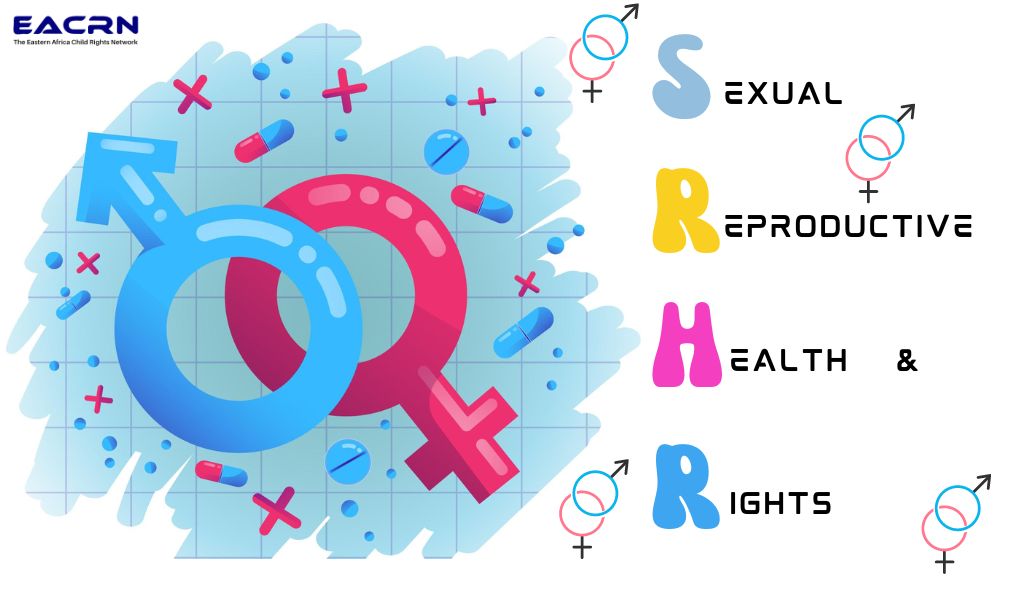Adolescent Sexual and Reproductive Health and Rights.
Globally, an estimated 13% of adolescent girls and young women give birth before age 18. In Africa, nearly one-third of teenagers become pregnant. In East Africa, adolescent pregnancy rates surpass the global average of 15%, with Kenya at 18% and both Uganda and Tanzania at 25%. According to a report by the Center for Reproductive Rights (CRR), almost 12 million adolescent girls give birth each year. It is also noted that there are about 27,000 maternal deaths that occur each year among adolescent girls. Adolescent pregnancy has also increased the number of child marriages in the East African Community.
Adolescent pregnancy poses a significant challenge in the region for girls, especially when it comes to access to education. For decades, pregnant students and adolescent mothers have been forced to drop out of school. In 2017, Tanzania adopted a discriminatory ban that prohibited them from continuing their education in public schools. However, in November 2021, the Tanzanian government announced that girls who had dropped out of school because of pregnancy could return to school immediately. This change allowed girls to re-enroll within two years of giving birth, or, if later than two years, they could enroll at an alternative education center that offers a condensed version of the curriculum. Apart from early pregnancy, adolescent girls face the danger of suffering from obstetric fistulas, eclampsia, puerperal endometritis and systemic infections. In worse cases, the young girls end up losing their lives due to pregnancy related complications.
East Africa Community Sexual and Reproductive Health Bill, 2021
First introduced in 2017 by Odette Nyiramilimo, former representative of Rwanda at the Assembly, the bill is regional legislation that is premised on Article 118 of the Treaty for the Establishment of the East African Community and it recognizes the obligation of Partner States under several international, continental, and community frameworks to respect, protect and fulfill the right to health by facilitating, providing and promoting the highest attainable standard of health and providing measures towards the full realization of the right to health.
The objective of this Bill is to protect and facilitate the attainment of the life-course sexual and reproductive health and rights of all persons in the community; to provide for the progressive realization of integrated sexual and reproductive health information and services as part of the universal health coverage of each Partner State; to prohibit harmful practices in the community; and to provide for related matters.
The Bill seeks to strengthen the mechanism to facilitate attainment by the East Africa Community of the goal to ensure access to sexual reproductive health care services and the integration of reproductive health into national strategies and programmes by 2030
For years, efforts have been made to push the East African Legislative Assembly (EALA) to pass the bill but unfortunately, the Bill couldn’t be passed during the 4th parliament.
importance of promoting Sexual and Reproductive Health and Rights
With the increasing cases of child marriage, abortions, female genital mutilation and teenage pregnancies in Eastern Africa, there is a need for us as civil society organizations and the government to unite and advocate for and promote sexual and reproductive health education in schools, at home and in our communities. Access to sexual and reproductive health and rights is extremely crucial for young people. It provides medical care and comprehensive sexuality education, which gives them vital information about their sexualities. Having access to sexual and reproductive health and rights can decrease child marriage, decrease teenage pregnancies and prevent the transmission of sexually transmitted infections.
Sexual and reproductive health and rights (SRHR) are an integral part of the right to health for all. To realise this right, every individual must be able to make their own choices about their bodies and sexual and reproductive health (SRH), free from discrimination, stigma, violence or coercion. The availability and affordability of a wide range of health services are also critical for achieving equality and ensuring that needed care is accessible to all.
Way Forward
It is up to us as CSOs to push the East African Legislative Assembly (EALA) to pass the East Africa Community Sexual and Reproductive Health Bill, 2021 . The Bill will help in mitigating the harmful practices in the community. This will help to educate and protect our girls.
Ref
https://reproductiverights.org/our-issues/adolescent-sexual-and-reproductive-health-and-rights/
https://data.unicef.org/topic/child-health/adolescent-health/
https://www.hrw.org/news/2022/04/01/tanzania-allows-teenage-mothers-be-back-school
https://www.guttmacher.org/report/universal-health-coverage-access-to-srh-services-subsaharan-africa

